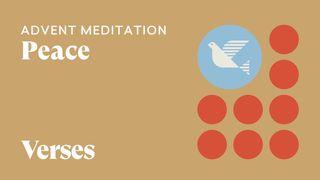Loving Our Global NeighborSample

Idealism Is Not Reality!
Is hope an idealistic concoction or a reality-driven pathway to help facilitate people from devastating economic crisis? As a general intervention, hope is overwhelmingly effective. But realistically, Wydick’s current research shows that 1) hope seems to be based on things going well in the present, with an expectation of things going well in the future; 2) it is possible to increase hope; and 3) hope may have modest, measured, and diverse impacts on the performance of small enterprises. Overall, the message is that hope can act as a fire starter and motivate positive long-term outcomes, but it is not the fuel that keeps projects going or the main focus for an individual in the trenches overcoming severe obstacles. Does it help? Yes. Can it be the main source of reliance? No.
So, what to do? Isn’t hope kind of like faith? Weren’t we taught that faith is “enough”? Here’s why faith and hope aren’t always enough, especially when you are facing the issue of global poverty and related international crisis.
My friend, Rob, works at a private university in the Center for Business as Missions department. His role is to teach and mentor students to think missionally about business and entrepreneurship. In 2012, he wrote the vision (aka “hope”) for and then co-founded The Well Coffeehouse. His passion is directed toward helping and serving the marginalized and impoverished. His belief is that one of the most effective ways to address local and global needs is through business as mission. His idea to start The Well Coffeehouse occurred when he discovered how many people around the world were dying every day because they didn’t have access to the basic necessity of clean water. His mission, his hope, was to provide impoverished communities (mainly in Africa) access to safe, clean drinking water. To this day, over twenty-three wells have been established! For each cup of coffee purchased, a person has the ability to live a safer and healthier life. Ultimately, you’re filling The Well so that we can pour hope and love into the lives of people in desperate need. They also source coffee ethically so that small communities can prosper from their crops. Every bag of The Well’s coffee is sourced with two thoughts in mind: they look for quality of flavor (because selling a poor-quality product doesn’t make for smart business); and they source in areas where they can make a maximum impact in the community (poor communities can produce amazing products!).
So back to hope . . . Do you think The Well Coffeehouse would have flourished and accomplished its goals with only hope? If Rob had only hoped with fervent prayer that something or someone would come along and make his dream happen—without developing a plan, a team of diverse people, fund-raising, and all the other elements that are necessary for implementation—would he have successfully helped the communities in Africa that now benefit from his vision? Of course not. Hope is the kindling, the early stage of getting up and feeling something worthy ignite within you. Hard work, intellect, collaboration, and endurance will expand the idealistic vision into reality.
Questions to ask yourself:
Hope is essential to kick-start a belief in a project you have. Realism is also necessary. What is one vision you have been “hopeful” about but not taken action steps toward the reality of its fruition? List attainable steps to move from hope to reality that relate to your specific calling.
Wydick lists the six i’s (or six stages) people tend to move through on the road toward loving their global neighbor. Determine what stage you see yourself in now: Ignorance, Indifference, Idealism, Investigation, Introspection, or Impact? List ways you can move through to the next stage. Reach out for help if you need it!
Prayer:Lord, I feel your spirit working in my heart to expand my spiritual gifts far beyond what I thought capable. I feel hopeful that my efforts will be blessed, but I am also realistic that it takes action and collaboration with your people to get things done. Meet me in my efforts. Open doors so that I may enter into territory that impacts the overlooked, the poor, the hungry, and the oppressed. Amen.
Scripture
About this Plan

This reading plan includes five daily devotions on Bruce Wydick's book Shrewd Samaritan: Faith, Economics, and the Road to Loving Our Global Neighbor. This study helps you understand your unique role and purpose when it comes to giving back and loving your neighbors well.
More
Related plans

The Return

Heart Rehab

Imposter Syndrome: You Are Who God Says You Are

God Our Refuge

And He Shall Be Called: Advent Devotionals, Week 1

So Much: A 3-Day YouVersion Bible Plan

Connect With God Through Remembrance | 7-Day Devotional

Advent Meditation: Peace

5 Ways Sacrifice Integrates Faith and Work
